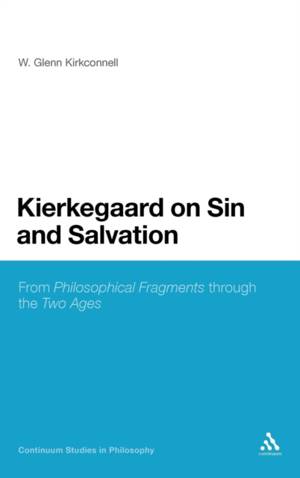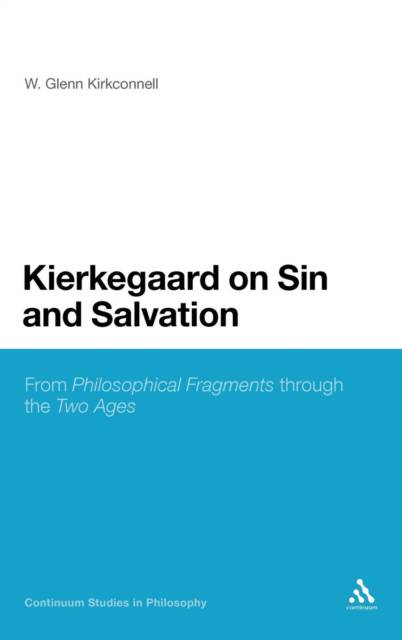
- Retrait gratuit dans votre magasin Club
- 7.000.000 titres dans notre catalogue
- Payer en toute sécurité
- Toujours un magasin près de chez vous
- Retrait gratuit dans votre magasin Club
- 7.000.000 titres dans notre catalogue
- Payer en toute sécurité
- Toujours un magasin près de chez vous
Kierkegaard on Sin and Salvation
From Philosophical Fragments Through the Two Ages
W Glenn Kirkconnell
339,45 €
+ 678 points
Format
Description
Søren Kierkegaard (1813-1855) is simultaneously one of the most obscure philosophers of the Western world and one of the most influential. His writings have influenced atheists and faithful alike. Yet despite his now pervasive influence, there is still widespread disagreement on many of the most important aspects of his thought.
Kierkegaard was deliberately obscure in his philosophical writings, forcing his reader to interpret and reflect. But at the same time that Kierkegaard produced his esoteric, pseudonymous philosophical writings, he was also producing simpler, direct religious writings. Since his death the connections between these two sets of writings have been debated, ignored or denied by commentators. Here W. Glenn Kirkconnell undertakes a thorough examination of the two halves of Kierkegaard's authorship, demonstrating their ethical and religious relationship and the unifying themes of the signed and pseudonymous works. In particular the book examines Kierkegaard's understanding of the fall of the self and its recovery and the implications of his entire corpus for the life of the individual.Søren Kierkegaard (1813-1855) is simultaneously one of the most obscure philosophers of the Western world and one of the most influential. His writings have influenced atheists and faithful alike. Yet despite his now pervasive influence, there is still widespread disagreement on many of the most important aspects of his thought. Kierkegaard was deliberately obscure in his philosophical writings, forcing his reader to interpret and reflect. But at the same time that Kierkegaard produced his esoteric, pseudonymous philosophical writings, he was also producing simpler, direct religious writings. Since his death the connections between these two sets of writings have been debated, ignored or denied by commentators. Here W. Glenn Kirkconnell undertakes a thorough examination of the two halves of Kierkegaard's authorship, demonstrating their ethical and religious relationship and the unifying themes of the signed and pseudonymous works. In particular the book examines Kierkegaard's understanding of the fall of the self and its recovery and the implications of his entire corpus for the life of the individual.
Spécifications
Parties prenantes
- Auteur(s) :
- Editeur:
Contenu
- Nombre de pages :
- 192
- Langue:
- Anglais
- Collection :
- Tome:
- n° 30
Caractéristiques
- EAN:
- 9781441120830
- Date de parution :
- 14-10-10
- Format:
- Livre relié
- Format numérique:
- Genaaid
- Dimensions :
- 156 mm x 234 mm
- Poids :
- 439 g







